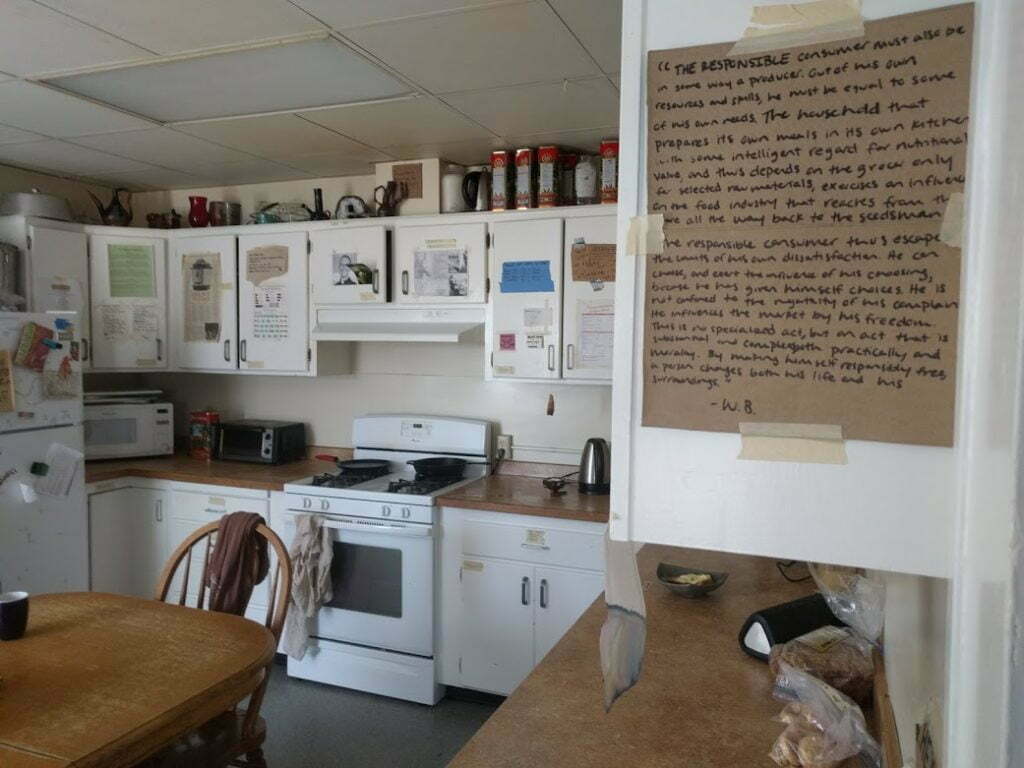For three-out-of-four of my years at Carleton College I have lived in Farm House– an exquisitely lovely “interest house” centered around food, farming, sustainability, and community living. The house has been a central feature of my college experience. It has helped me keep busy and social, and many of my fondest college memories occurred within the houses walls or in its expansive yard.
The house is loosely associated with the student farm, which is located just outside our door. (The farm is managed by a farming club and two or three student workers over the summer, but there is often overlap between the farmers and the residents.) We divvy up household chores, take turns cooking, eat communal dinners, and put on events for the campus.
It occurs to me that I have devoted a great deal of time to cooking in, and cleaning up, this house’s kitchen, a task that is absent the lives of many of my peers who opt to remain on the meal plan all four years. Some say “I’ll have to cook and clean for the rest of my life, I want to enjoy the dining halls while they are here.” And I understand that sentiment. But I have found the cooking to be quite manageable when we share the responsibility, and cleaning the Farm House kitchen often feels less like a chore and more like a soothing respite from the bustle and stress of college– a kind of meditative joy. Continue reading “The Meditative Joy of Cleaning a Community Kitchen”




